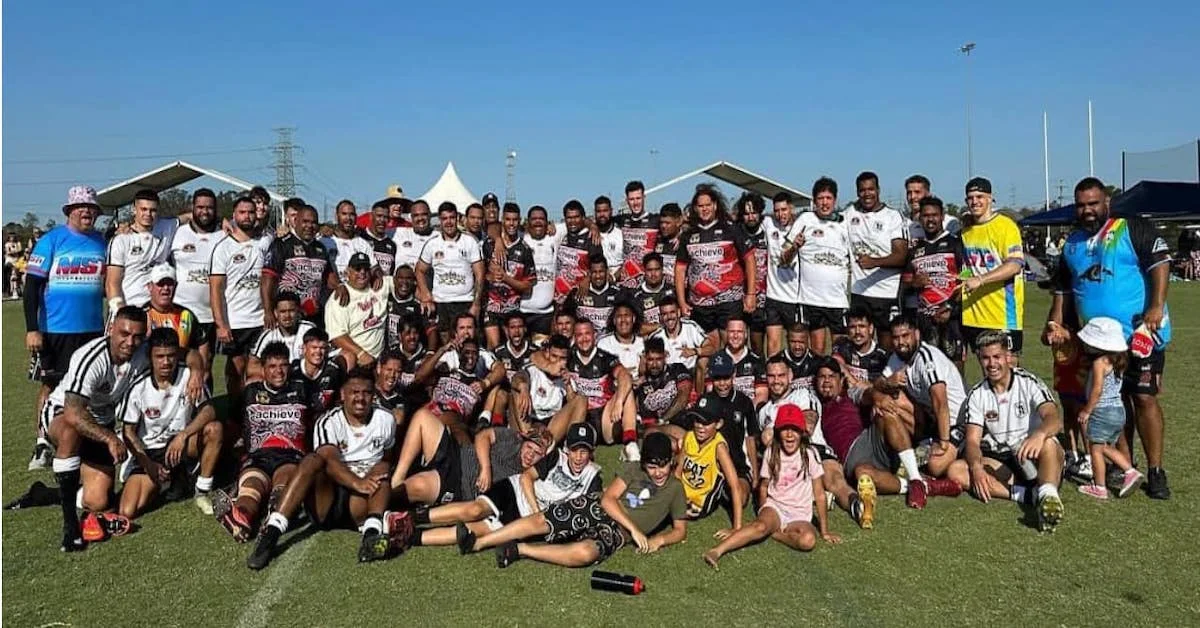The Redfern All Blacks, Australia’s oldest Indigenous rugby league club, marked its 80th anniversary at Redfern Oval, coinciding with the club’s appearance in the 2024 South Sydney District Rugby League A-Reserve grand final.
The Redfern All Blacks, founded in 1944, have a long and rich history in both rugby league and the Aboriginal community.
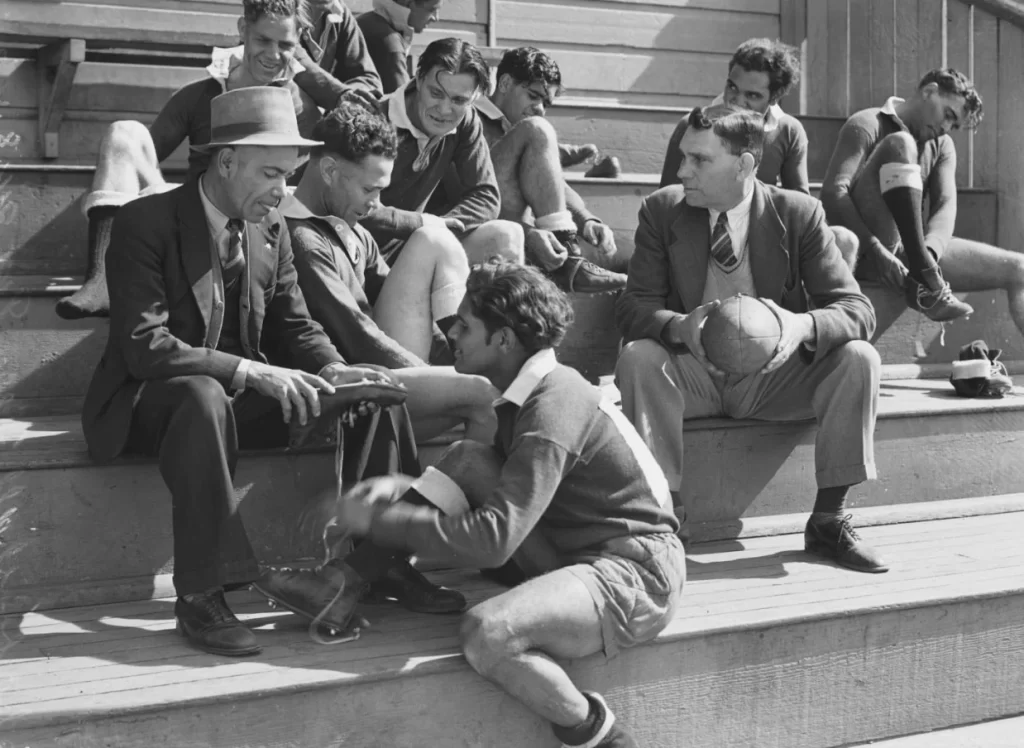
Over the decades, the club has been a hub of cultural pride and resistance, especially in the face of social and political challenges. From its early beginnings, when Aboriginal families moved to Redfern in the 1920s to find work, the club has offered many Indigenous Australians a sense of belonging and identity.
According to Nathan Moran, a former Redfern All Blacks player and now CEO of the Metropolitan Local Aboriginal Land Council, rugby league was more than just a game.
“Footy and boxing were always our avenue out – literally off the mission and then later as a chance to get ahead,” Moran said, reflecting on how sports provided an escape for many in the community.
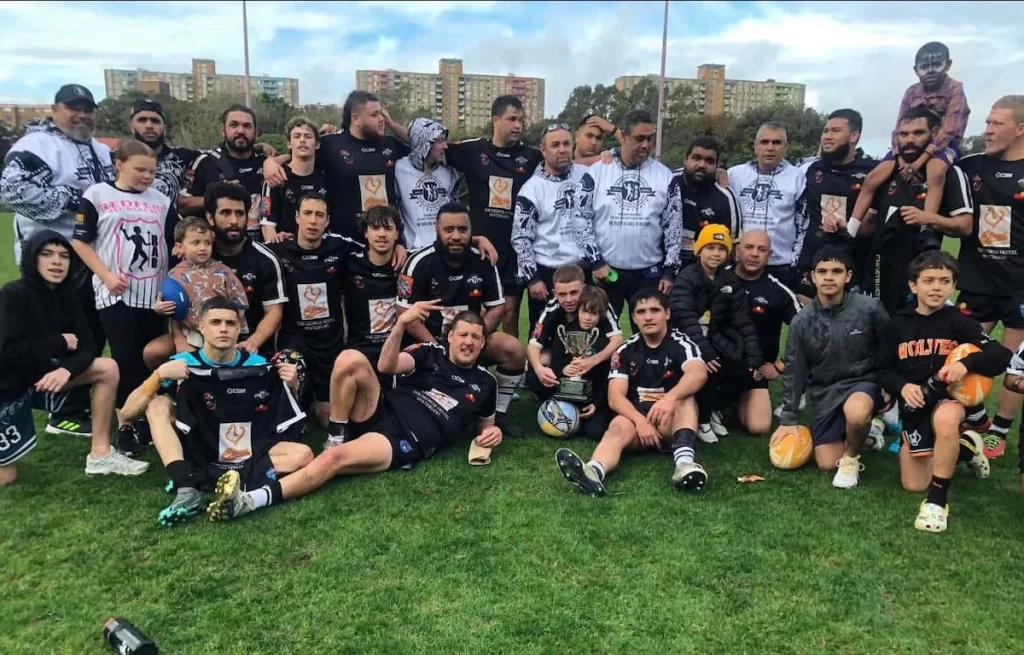
Generations of Family and Community
The club’s legacy is reflected in its people. Long-time members like John Young, known as “Uncle Blackdog,” have witnessed generations of players come through the ranks. At almost 70 years old, Young has been involved with the club for 47 years, working as a coach and, today, as a team strapper. He proudly described one player, nicknamed “Bubba,” saying, “I coached Bubba in nappy grade and now I am strapping him in men’s footy.”
Keith “Kip” Munro, the club’s junior convenor, has also been integral to the club’s continued success. A few years ago, the All Blacks were down to five teams. The club has expanded to 20 teams through Munro’s dedication, providing role models at every age level.
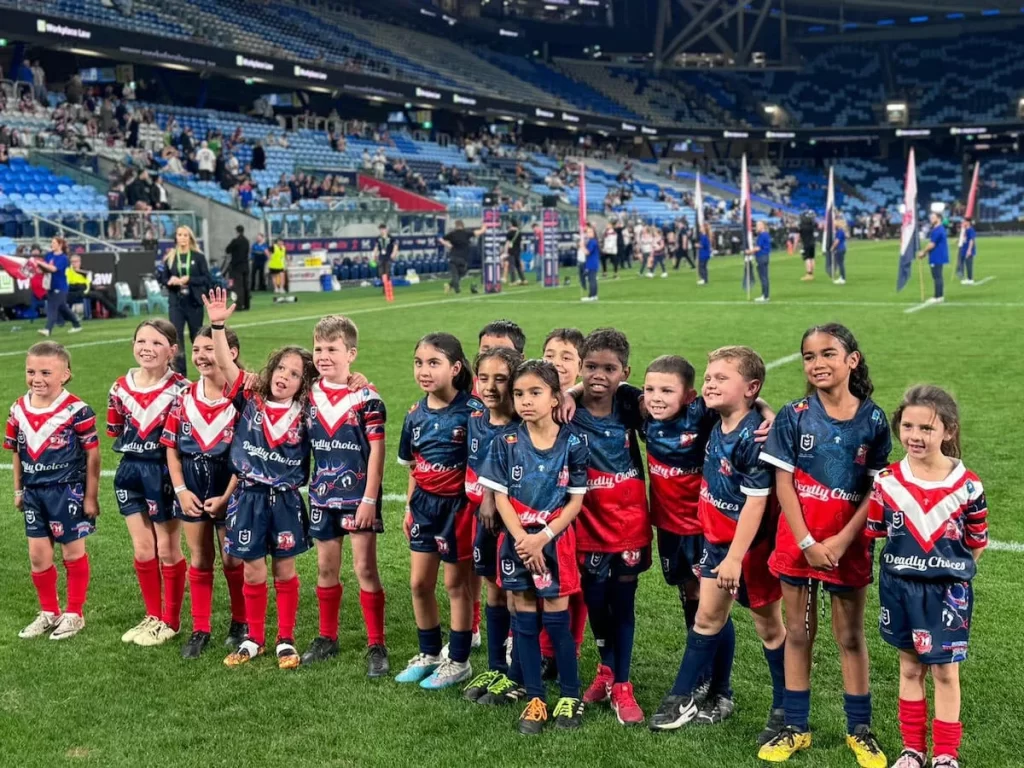
A Symbol of Resistance
The Redfern All Blacks have been at the heart of the Aboriginal and Torres Strait Islander civil rights movement. In the 1970s, the club established Aboriginal-controlled organisations in Redfern, including legal, housing, and medical services. In its early years, the club faced scrutiny for its links to the Black Power movement and activism, yet it remained a symbol of defiance against assimilation.
Even in today’s landscape, where gentrification is impacting Redfern and pushing some families to Western Sydney, the All Blacks remain a symbol of resilience. Members now commute back to Redfern to play, keeping the club’s spirit alive.
Growing Opportunities for Women
One of the club’s most significant developments in recent years has been the growth of its women’s program. Women and girls now make up 45% of the All Blacks’ players, with four of them representing Australia as Jillaroos.
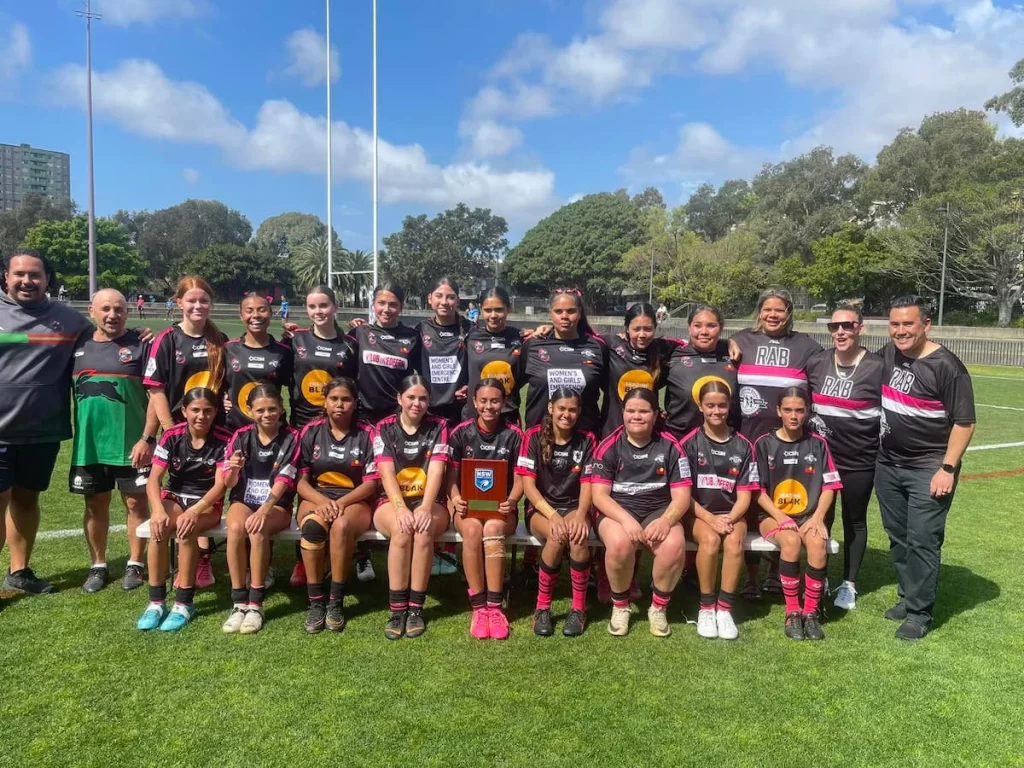
Aunty Beryl Van-Oploo, a community matriarch who has been part of the All Blacks since she was 16, is thrilled to see women taking such an active role. She remembers when women were primarily responsible for fundraising and jersey washing, and she notes the positive change in opportunities for young girls.
A Narrow Grand Final Defeat
Despite the celebrations, the Redfern All Blacks were narrowly defeated in the grand final last 8 September, losing 16-12 to Mascot. The loss didn’t dampen the spirits of the team or its loyal supporters, who gave the players a standing ovation.
For Moran, the defeat was just a temporary setback. “We’re resilient, still here and strong, and there’s always next year,” he said.
The Redfern All Blacks have spent the last 80 years keeping the ball in motion, both on and off the field, and their story continues as a powerful example of community, resilience, and cultural pride.
Published 15-Sept-2024



